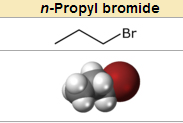News on Occupational Exposure to N-PropylBromide, a Neuro-toxin
Yesterday’s NY Times drew my attention with a front-page article on the Occupational Safety and Health Administration (OSHA) and its inability to prevent harm among furniture and cushion factory workers in the U.S. Even though hundreds of workers in North Carolina handling nerve-damaging glues have developed neurological toxicity, OSHA failed to suppress use of likely chemical culprits.

Regulating industry is complicated. The Times reporter, Ian Urbina, focuses on a compound, n-propyl bromide, aka nPB or 1-bromopropane, that’s used by “tens of thousands of workers in auto body shops, dry cleaners and high-tech electronics manufacturing plants across the nation.”
Problem is – it’s hard and possibly impossible, based on studies of factory workers, to prove cause and effect. He writes:
Pinpointing the cause of a worker’s ailment is an inexact science because it is so difficult to rule out the role played by personal habits, toxins in the environment or other factors. But for nearly two decades, most chemical safety scientists have concluded that nPB can cause severe nerve damage when inhaled even at low levels…
The lack of absolute proof – that a particular chemical substance has cause disease in an individual –is exacerbated by the fact that many cushion and glue workers’ symptoms, like numbness and tingling, are subjective: At one company, Royale, a ledger of employees’ illness is said to list “Alleged Neurologic Injury.” This phrase reflects the evaluators’ doubt of the handlers’ complaints and, by insinuation, adds insult to injury – some so severe the workers couldn’t button a shirt, feel a cut, bleeding foot, or stand for more than a few minutes.
The government agency that might respond, OSHA, is woefully understaffed. According to the Times:
“OSHA still has just 2,400 responsible for overseeing roughly eight million work sites — roughly one inspector per 60,000 workers, a ratio that has not changed since 1970. The federal budget for protecting workers is less than half of that set aside for protecting fish and wildlife…
Regulation of industry kills jobs, some say – it’s for this reason that some individuals most likely to suffer harm from manufacturing align with corporations. What’s more, if people lack education about chemistry and need employment, they may not choose or know what’s in their long-term best interests. This piece, like the story of Toms River, points to the unfortunate reality that many citizens tolerate and even take pride in a damaging local business, especially if the health problems it causes are insidious, affect some but not all exposed, and the facts aren’t in full view.
Leave a Reply